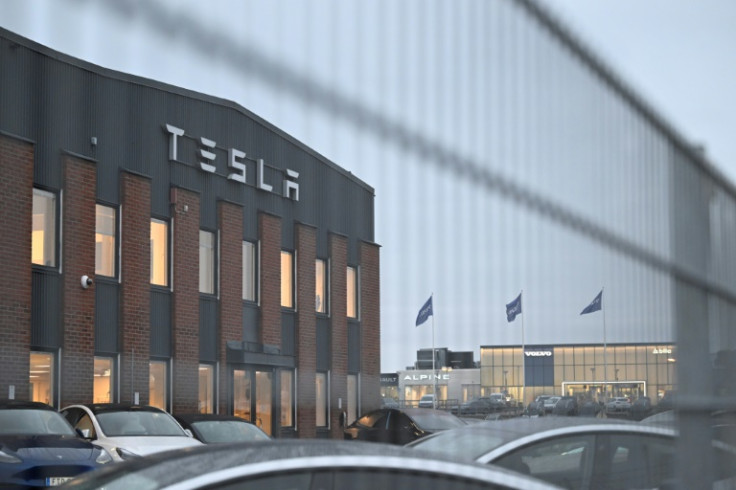Elon Musk Denounces Five Week Strike as Swedish Workers Challenge Tesla
Tesla, the electric vehicle giant led by entrepreneur Elon Musk, finds itself at the centre of a labour dispute as workers in Sweden embark on strikes.

Tesla, the electric vehicle giant led by entrepreneur Elon Musk, finds itself at the centre of a labour dispute as workers in Sweden embark on strikes.
In what is depicted as the most significant struggle in decades to preserve Sweden's union model against global labour practices, the influential trade union IF Metall has spearheaded a strike spanning eight Tesla workplaces in Sweden for a period of five weeks.
In response, Musk has publicly condemned the strikes, labelling them "insane" while asserting the need for a balanced approach to address concerns raised by the workforce.
The labour unrest comes amid the global spotlight on the automotive industry's transition towards sustainable practices. As Tesla strives to maintain its position as a front-runner in this shift, the company is now faced with navigating the complexities of labour relations in one of its key manufacturing locations.
Swedish workers, organised under various unions, have initiated strikes to voice concerns over working conditions, wages, and job security. The grievances highlight the growing tensions between labour and management as the push for more sustainable and innovative practices accelerates.
In a series of tweets and public statements, Musk expressed his frustration with the strikes, deeming them detrimental to Tesla's mission of accelerating the world's transition to sustainable energy.
Musk argued that such disruptions impede progress and hinder the company's ability to achieve its ambitious goals, including the production of more electric vehicles at an unprecedented scale.
With over 300,000 members in the Swedish industry, IF Metall has affirmed its commitment to persist with the strikes for as long as necessary. The union took this action in response to Tesla's refusal to enter into a collective agreement with its members.
Collective agreements, encompassing aspects such as salary, pension, working hours, and holidays, represent a fundamental element of Sweden's labour market model. These agreements, in principle, signify that unions and employers, rather than the state, regulate the labour market.
Despite a decline in union membership in Sweden over recent decades, a substantial number of workers are still affiliated with unions, with approximately nine out of ten employees benefiting from collective arrangements.
The Swedish workforce sees itself as a vital part of Tesla's success and envisions a collaborative approach that ensures the well-being of employees aligns with the company's environmental objectives.
The strikes have garnered support from various labour advocacy groups and environmental activists who argue that sustainable practices should extend beyond the products themselves to encompass the entire production process, including the treatment of workers.
IF Metall spokesperson, Jesper Pettersson said: "We are well prepared for a prolonged conflict. Regrettably, we have no ongoing talks with Tesla Sweden at the moment, but as always, we are available for further talks as soon as possible."
The intersectionality of environmental and labour issues has become a focal point, raising questions about the ethical dimensions of the rapidly expanding green tech sector.
The unions argue that a harmonious relationship between the workforce and management is not only ethically imperative but also critical for the long-term success and reputation of companies in the evolving green technology landscape.
The situation in Sweden prompts a broader examination of the dynamics between technology pioneers, labour forces, and sustainability goals.
As companies like Tesla strive to redefine industries and lead in environmentally conscious practices, they face the challenge of ensuring that their commitment extends to all facets of their operations, including the treatment of their workforce.
The outcome of the labour dispute in Sweden is anticipated to set a precedent for how companies navigate the delicate balance between innovation, environmental responsibility, and the well-being of their employees.
It remains to be seen whether Elon Musk and Tesla will engage in meaningful dialogue with the workers to address their concerns or if the tensions will escalate, posing potential challenges to Tesla's reputation as a trailblazer in the transition to a sustainable future.
© Copyright IBTimes 2024. All rights reserved.






